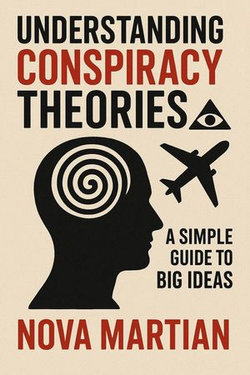n today's complex and fast-moving world, conspiracy theories have become a significant force shaping public opinion, social trends, and even political landscapes. "Understanding Conspiracy Theories: A Simple Guide to Big Ideas" provides a clear, accessible introduction to what conspiracy theories are, how they originate, and why they matter. Drawing on famous examples and timely case studies, the book expertly distinguishes between conspiracies, rumors, and urban legends, exploring the unique mechanisms that fuel the spread and persistence of these powerful narratives.
Moving beyond definitions, the book delves into the historical roots and psychological foundations of conspiratorial thinking, tracing their evolution from ancient societies to the digital age. Readers gain insight into how cognitive biases, social identity, emotional appeals, and digital media ecosystems combine to shape beliefs and behaviors. With carefully structured chapters, the guide illuminates the cultural, social, and technological dynamics that contribute to the allure and impact of conspiracy theories worldwide.
Equipped with practical tools for critical thinking and media literacy, "Understanding Conspiracy Theories" empowers readers to recognize, challenge, and thoughtfully discuss conspiratorial claims. The book concludes by exploring future trends and offering strategies for resilience, public policy, and responsible citizenship. Whether you're a student, educator, or concerned citizen, this essential guide offers the clarity and skills needed to navigate one of the most pressing issues of our era.



Share This eBook: